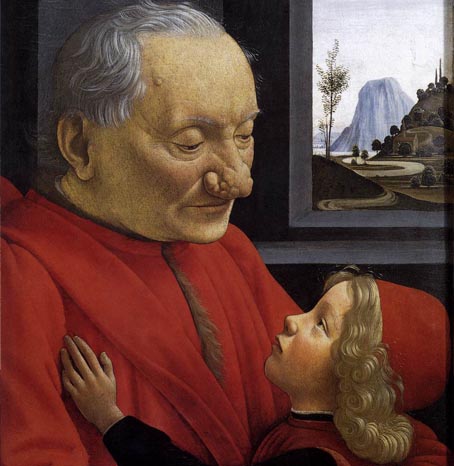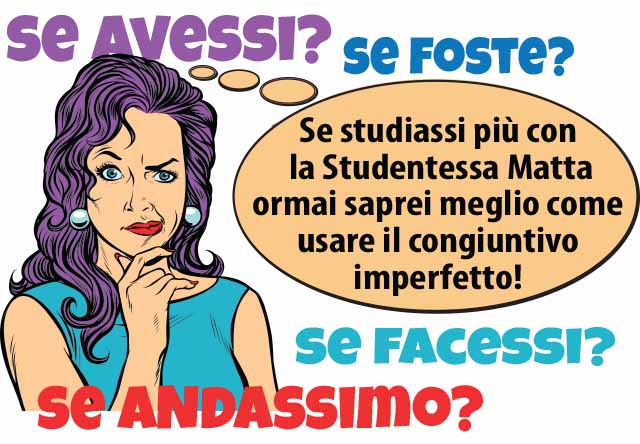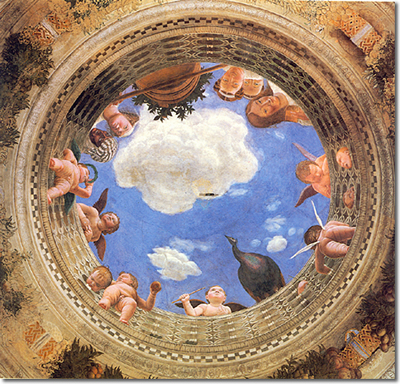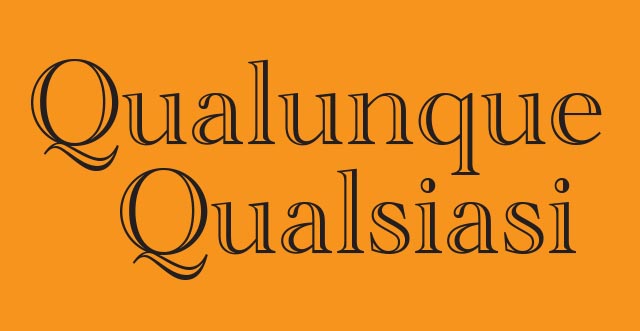
Il tempo condizionale italiano: esplorare scenari ipotetici, fare richieste educate ed esprimere desideri
The Italian Conditional Tense: Exploring hypothetical scenarios, making polite requests and expressing desires
In questo post, scopri la chiave segreta per sbloccare innumerevoli possibilità in italiano. Che si tratti di fare gentili richieste, sognare a cuore aperto, abbracciare l’incertezza o esplorare scenari immaginari ‘e se’, il tempo condizionale è il modo per farlo!
In this post, you’ll discover the secret key to unlock countless possibilities in Italian. Whether you want to make a polite request, dream your heart out, embrace uncertainty, or explore imaginative ‘what if’ scenarios, the conditional tense is the way to do it!
Inizieremo con una storia su Marco il gatto, che usa un sacco di verbi condizionali, poi impararemo come formulare il tempo condizionale e finalmente vedere come usare il tempo condizionale nelle frasi.
We will start with a story about Marco the cat, that uses loads of conditional verbs, then we will move on to learning how to formulate the conditional tense and finally see how to use the conditional tense in sentences.

C’era una volta un piccolo gatto di nome Marco che sognava di volare!
“Se fossi un uccello, potrei volare tra le nuvole e vedere lontano e largo.”
Here’s a little story about Marco the cat, that uses loads of conditional verbs.
C’era una volta un piccolo gatto di nome Marco. Lui sognava di volare nel cielo come un uccellino. “Se fossi un uccello, potrei volare tra le nuvole e vedere lontano e largo. Vedrei cose così fantastiche. Sì! Mi piacerebbe così tanto scoprire più di questo mondo meraviglioso.
Così, il gatto che voleva essere un uccello salterebbe in aria ogni giorno, sperando che il suo desiderio si avverasse. Una volta è saltato cosi in alta che restava in aria per un paio di secondi. Poi atterrava a terra con un forte tonfo. Ancora in piedi, spazzando via la polvere, disse con determinazione: “Quella volta ha quasi funzionato. Continuerò a praticare, perché farei di tutto per poter volare.”
Poi un giorno, mentre passeggiava per il parco, trovò una bella piuma d’oro, Osservandola disse speranzoso: “Forse questa piuma potrebbe aiutarmi a volare.” Iniziò agitare la piuma in aria, ma non è successo nulla. Con un profondo sospiro, pensò triste: “Dovrei arrendermi e basta. Anche se provassi un migliaio di giorni, non riuscirei mai a volare.”
Sconsolato, Marco abbassò la testa e cominciò a tornare a casa. Come fece, la piuma d’oro nella sua mano cominciò a tremare e lo sentì sussurrare: “Non, dovresti smettere di sognare di volare.” Marco guardò la piuma sbalordito. Poi la piuma sussurrò, “Sollevami in alto sopra la tua testa e corri più veloce che puoi.”
La piuma doveva essere magica dopo tutto, perché improvvisamente, quando una leggera brezza cominciò a soffiare, Mark si alzò nel cielo. Chi avrebbe immaginato che con l’aiuto della piuma dorata, sarebbe diventato un gatto con le ali? Con suo stupore, Mark volò tra le nuvole e guardò il mondo da una prospettiva totalmente nuova.
Annunciando con gioia al mondo: “Guardami! Sono Marco, il gatto volante.” Poi, alla piuma d’oro nascosta nel suo cappotto, aggiunse: “Se avessi smesso di sognare, il mio più grande desiderio non si sarebbe mai avverato. Forse tutti i miei desideri potrebbero avverarsi se non smettessi mai di sognare.”
“E forse,” disse la piuma d’oro con una piccola risatina, “dovresti sempre tenermi in tasca!”
Once upon a time, there was a little cat named Marco. He dreamed of flying in the sky like a little bird. “If I were a bird, I could fly among the clouds and see far and wide. I would see such fantastic things. Yes! I would love so much to discover more of this wonderful world.
So, the cat that wanted to be a bird would jump into the air every day, hoping his wish would come true. Once, he jumped so high that he stayed in the air for a couple of seconds. Then he landed on the ground with a loud thud. Once again, on his feet, sweeping away the dust, he said with determination, “That time, it almost worked. I will keep practicing because I’d do anything to be able to fly.
Then, one day, while strolling through the park, he found a beautiful golden feather. Looking at it, he said hopefully, “Maybe this feather could help me fly.” He began waving the feather in the air, but nothing happened. With a deep sigh, he thought sadly: “I should just give up. Even if I tried a thousand days, I’d never be able to fly.”
Dejectedly, Marco lowered his head and started to go home. As he did, the golden feather in his hand began to tremble, and he heard him whisper, “You shouldn’t stop dreaming of flying.” Mark looked at the feather in amazement. Then the feather whispered, “Lift me high above your head and run as fast as you can.”
The feather must have been magical because suddenly, when a slight breeze began to blow, Mark rose up into the sky. Who would have imagined that with the help of the golden feather, he would become a cat with wings? To his amazement, Marco flew through the clouds and looked at the world from a new perspective.
Announcing jubilantly to the world, “Look at me! I’m Marco, the flying cat.” Then, to the golden feather tucked inside his coat, he added, “If I had stopped dreaming, my greatest wish would never have come true. Perhaps all my wishes may come true if I never stop dreaming.”
“And maybe,” the golden feather said with a small chuckle, “you should always keep me in your pocket!”
Entra il mondo del Conditionale, dove i gatti possono trasformarsi in uccelli,
tutte le richieste sono gentili e puoi osare sognare!
Step into the Italian Conditional tense, where cats can turn into birds,
all requests are polite, and you can dare to dream!

How to Formulate the Italian Conditional Verb Tense
Verbi regolari in -ARE: / Regular -ARE verbs:
Drop the -ARE ending
add to the stem: -erei, -eresti, -erebbe, -eremmo, -ereste, -erebbero
Regular Verbs ending in ”-ARE” such as PARLARE (to speak)
Start with the infinitive form of the verb (parlare).
Remove the -are ending, leaving the stem (parl-).
Add the appropriate Conditional tense endings to the stem:
Io parlerei (I would speak)
Tu parleresti (You would speak)
Lui/lei parlerebbe (He/she would speak)
Noi parleremmo (We would speak)
Voi parlereste (You all would speak)
Loro parlerebbero (They would speak)
Per verbi regolari in -ERE / For regular -ERE verbs
Drop the -ERE ending
add to the stem: -rei, -resti, -rebbe, -remmo, -reste, -rebbero
Regular Verbs ending in “-ERE” such as CREDERE (to believe)
Start with the infinitive form of the verb (credere).
Remove the -ere ending, leaving the stem (cred-).
Add the appropriate Conditional tense endings to the stem:
Io crederei (I would believe)
Tu crederesti (You would believe)
Lui/lei crederebbe (He/she would believe)
Noi crederemmo (We would believe)
Voi credereste (You all would believe)
Loro crederebbero (They would believe)
Per verbi regolari in -IRE / For regular -IRE verbs
Drop the -IRE ending
add to the stem: -irei, -iresti, -irebbe, -iremmo, -ireste, -irebbero
Regular Verbs ending in ”-IRE” such as PARTIRE (to leave)
Start with the infinitive form of the verb (partire).
Remove the -are ending, leaving the stem (part-).
Add the appropriate Conditional tense endings to the stem:
Io partirei (I would leave)
Tu partiresti (You would leave)
Lui/lei partirebbe (He/she would leave)
Noi partiremmo (We would leave)
Voi partireste (You all would leave)
Loro partirebbero (They would leave)
Ecco modi per utilizzare il tempo Condizionale italiano.
Here are ways to use the Italian Conditional Tense
Ora che sai come formulare il Tempo Condizionale, è il momento di scatenarlo nelle tue conversazioni in italiano! Preparati a incantare attraverso richieste gentili, a dipingere il tuo quadro di sogni e desideri, a navigare nell’intrigante mondo del dubbio e dell’incertezza, e a evocare incantevoli scenari ipotetici.
Now that you know how to formulate the Conditional tense, it’s time to unleash it in your Italian conversations! Get ready to charm your way through polite requests, paint the canvas of your dreams and desires, navigate the intriguing realm of doubt and uncertainty, and conjure enchanting hypothetical scenarios.

Could you pass me the tea, please?
1. Fare Richieste Educate / Making Polite Requests
In Italian, the Conditional tense is often used to make polite requests or suggestions, similar to the English “Could you…?” or “Would you mind…?” For instance, you typically begin a polite request with “Potresti” or “Mi potrebbe.” These phrases are equivalent to saying “Could you…” or “Would you mind…” in English and set the stage for your request.
“Potresti” is the informal form often used in everyday situations.
Potresti passarmi il te, per favore?
Could you pass me the tea, please?
Potremmo avere il conto, per cortesia?
Could we have the bill, please?
“Mi potrebbe” is the more formal and polite version, suitable for addressing someone you don’t know well or in more formal settings.
Mi potrebbe aiutare con questa valigia, per favore?
Would you mind helping me with this suitcase, please?

I would like to marry a fascinating man.
2. Esprimere Desideri e Aspirazioni /
Expressing Wishes and Desires
You can use the Conditional tense to express your wishes, desires, or aspirations. It’s a way of saying what you would like to happen or achieve in the future. To express wishes and desires in the Conditional tense, you can start with one of these phrases Vorrei” (I would like) or Mi piacerebbe” (It would please me).
Vorrei sposarmi con un uomo affascinante.
I would like to marry a fascinating man.
Mi piacerebbe visitare l’Italia un giorno.
I would like to visit Italy one day.

If we had more sugar, we would make a beautiful cake.
3. Esprimere Dubbio o Incertezza /
Expressing Doubt or Uncertainty
The Conditional tense can also be used to express doubt or uncertainty about a situation or outcome. Here’s how to do it:
Begin by using “Se” (If) or Similar Conditional Clauses
To express doubt or uncertainty, you often start your sentence with “Se” (if) or another conditional clause that sets up the hypothetical situation you’re unsure about. This introduces the element of uncertainty into your statement. The “Se” clause will be formulated using the Italian Past Subjunctive tense.
Then use the Verb in the Conditional Tense:
Following the conditional clause, use the verb in the Conditional tense to convey the uncertainty or doubt regarding the outcome. The verb should be conjugated according to the subject of the sentence.
Se lui venisse, sarei sorpreso.
If he were to come, I would be surprised.
Non so se avrei il coraggio di farlo.
I don’t know if I would have the courage to do it.
Se avessi più tempo, studierei di più.
If I had more time, I would study more.
Se avessimo più zucchero, faremmo una bella torta.
If we had more sugar, we would make a beautiful cake.

Perhaps one day we would have a house by the sea.
4. Esprimere Scenari Ipotetici /
Expressing Hypothetical Scenarios
Expressing hypothetical scenarios in Italian using the Conditional tense allows you to discuss imaginary or unreal situations. It’s a great way to explore “what if” scenarios and engage in creative or speculative conversations. Here’s how to do it:
Begin your sentence with a conditional clause
that sets up the hypothetical scenario.
“Se” (If): This is the most common way to introduce a hypothetical condition, just like “if” in English. The “Se” clause will be formulated using the Italian Past Subjunctive tense.
“Nel caso in cui” (In the case that): This is a slightly more formal way to introduce a condition. The “nel” clause will be formulated using the Italian Past Subjunctive tense.
“Supponiamo che” (Let’s suppose that): This phrase invites the listener to consider a hypothetical situation. The “supponiamo” clause will be formulated using the Italian Past Subjunctive tense.
Following the conditional clause, use the verb
in the Conditional tense to describe what
would happen in the hypothetical scenario.
Se fossi un uccello, volerei in giro per il mondo.
If I were a bird, I would fly around the world.
Nel caso in cui avessi più tempo, imparerei a suonare la chitarra.
In the case that I had more time, I would learn to play the guitar.
Supponiamo che vincessi alla lotteria, comprerei una casa in montagna.
Let’s suppose that I won the lottery; I would buy a house in the mountains.
Se avessi più soldi, viaggerei per il mondo.
If I had more money, I would travel the world.
To make your hypothetical scenarios even more engaging, you can use expressions like “magari” (perhaps) or “chissà” (who knows) in combination with the Conditional tense. These words add an element of uncertainty and speculation.
Magari un giorno avremo una casa al mare.
Perhaps one day we would have a house by the sea.
Chissà cosa farei se fossi milionario!
Who knows what I would do if I were a millionaire!
Il tempo condizionale italiano al passato
The Italian Conditional tense in the Past

If I had eaten less, I wouldn’t have felt so full.
Un altro aspetto del condizionale italiano è la sua capacità di trasmettere situazioni ipotetiche del passato. Aggiunge un ulteriore livello di sfumature, consentendo agli oratori di esplorare scenari passati immaginari e i potenziali risultati futuri.
Another aspect of the Italian conditional tense is its ability to convey hypothetical situations in the past. It adds an extra layer of nuance, enabling speakers to explore imaginary past scenarios and the potential outcomes in the future.
Se avessi studiato di più, avrei superato l’esame.
If I had studied more, I would have passed the exam.
Se avessi preso l’aereo, sarei arrivato prima.
If I had taken the plane, I would have arrived earlier.
Lei avrebbe comprato quella casa se avesse avuto i soldi.
She would have bought that house if she had had the money.
Se avessimo saputo prima, avremmo cambiato il piano.
If we had known earlier, we would have changed the plan.
Se avessi mangiato meno, non mi sarei sentito così pieno.
If I had eaten less, I wouldn’t have felt so full.

Il Condizionale… dove i sogni possono prendere il volo e dove ogni “se” ti guida verso un’avventura affascinante.
The Italian conditional tense… where dreams can take flight and
where every “if” will guide you to a fascinating adventure.
Il tempo Condizionale Italiano non solo ti permette di esplorare scenari ipotetici come gatti che si trasformano in uccelli per vedere il mondo da una nuova prospettiva, ma ti permette anche di esprimere innumerevoli possibilità in italiano, sia che tu stia facendo richieste educate, esprimere desideri, navigare dubbio e incertezza, o semplicemente indulgere in conversazioni fantasiose.
The Italian Conditional tense not only allows you to explore hypothetical scenarios like cats turning into birds to see the world from a new perspective but also enables you to express countless possibilities in Italian, whether you’re making polite requests, expressing wishes, navigating doubt and uncertainty, or simply indulging in imaginative conversations.










